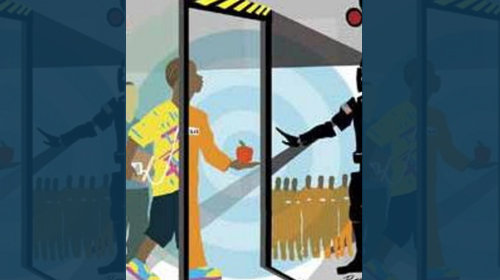Honor Student Jailed and Fined for Missing School

As a teacher, I’ve learned that students’ home lives will inevitably spill over into the classroom and effect the learning environment. This is not to say that students who experience external trauma or have unstable lives will always act out, or that they should receive a pass if they do. What this means is that educators, on all levels, have to be understanding of their students’ individual needs. They need to show discretion when determining appropriate discipline. Students should not be prematurely and unnecessarily exposed to the criminal justice system for minor, correctable offenses; this nationwide phenomenon known as the “school to prison pipeline” pushes students out of school as a result of disproportionate disciplinary action and into the criminal justice system. The intuitive response to a student missing school should be to find a way to get them back, not criminalize them. However, Texas’ punitive rule, like so many other states across the nation, leaves no room to consider the individual experiences of students that might contribute to their erratic attendance. Nor does it provide alternative services to ensure that students are able to take full advantage of their educations.
Tran’s case has garnered widespread national media attention and people have even taken up collections to pay her fine, raising nearly $28,000. Petitions with more than 26,000 signatures have been circulated in communities across the country, and the general consensus is shock and disgust over this illustration of misappropriated justice. While what happened to Diane is tragic and should not be taken lightly, the true travesty is that these unnecessary jailings happen regularly. The ACLU recently settled a case on behalf of high school students in southeast Texas who were unjustly jailed in 2010, each for over a week because of accrued truancy fines. It is not enough to revoke the punishment of a single model student. There must be widespread reform in the educational community to ensure that children are not criminalized and pushed out of the very institutions that should be shaping them for success.


Comments
Post a Comment